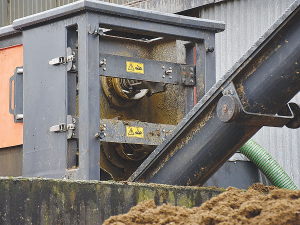While New Zealand can claim to be particularly good at producing milk from grass, we still have a lot to learn about effluent.
With the Ukrainian conflict causing a major increase in global fertiliser prices, due to high energy prices and reduced production levels, many dairy farmers started to take a closer look at the nutritional value of effluents and manures. But it looks like our “cousins” on the Emerald Isle appear to be a whole lot further ahead.
Separating the solid and liquid components of dairy effluent would seem to make a great deal of sense, not just by increasing available storage capacity. The liquid faction contains a higher nitrogen concentration, meaning it is an ideal grass growth booster that can reduce the reliance on bought-in fertiliser.
Although fertiliser prices have recently dropped, the sharp drop in the expected final payout for the 2023-24 season means farmers might be reluctant to commit to their normal fertiliser order. Lower fertiliser use risks a shortage of grass and silage after a season that has been compromised because of the extended wet weather.
Undoubtedly, making efficient use of both the liquid and solid manures available makes a great deal of sense.
However, there is another solution that involves separating slurry into solids and liquids, each rich in specific nutrients, which can be applied to the land, saving money on the expensive artificial fertiliser.
A recent convert to separation is Richard Foster with his Precision Slurry Management business based in Limavady in Northern Ireland, who runs a mobile slurry separator that he takes from farm to farm around the region.
Over the summer of 2020, Richard researched different mobile slurry separators, and eventually settled on a Storth mobile SP600. At the time, the main concern was whether there would there be enough interest in slurry separation to justify purchasing a machine, plus generator and a lorry to transport it about. Precision Slurry Management started trading in September 2020, with a separator mounted on a flat-bed truck, but eventually switched to a unit behind a tractor. At that time of the year, farmers were rallying hard to empty their slurry storage before the October 15 spreading ban deadline implemented by the Irish government.
“In order to make the system pay, I was looking for a production capacity of around 40 to 50 cubic metres per hour,” says Richard.
“The actual throughput of the machine was only about one third of what it was bench tested for. I have since found out that separators are tested on water, not on cow slurry, hence the throughput goes down.”
Typically reducing the volume of slurry by up to 20% in thick slurries, the benefits include the solids being able to be heaped up and the liquid portion being much lower in volume, which reduces the slurry storage requirement.
“When separated, the liquid containing the bulk of the nitrogen can be spread on grazing ground or after a silage crop, typically soaking into the ground quickly, right down to the roots of the plants.


















